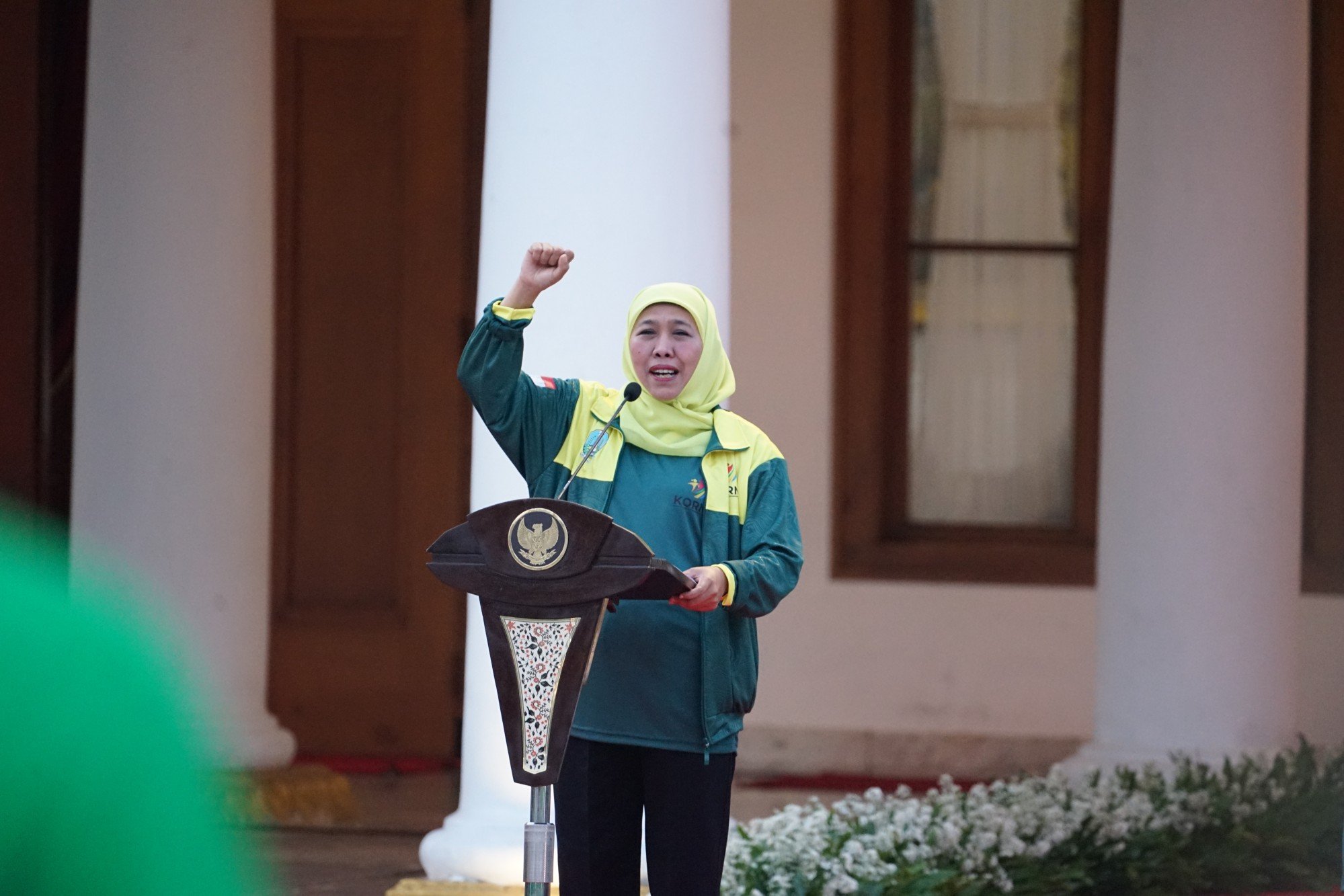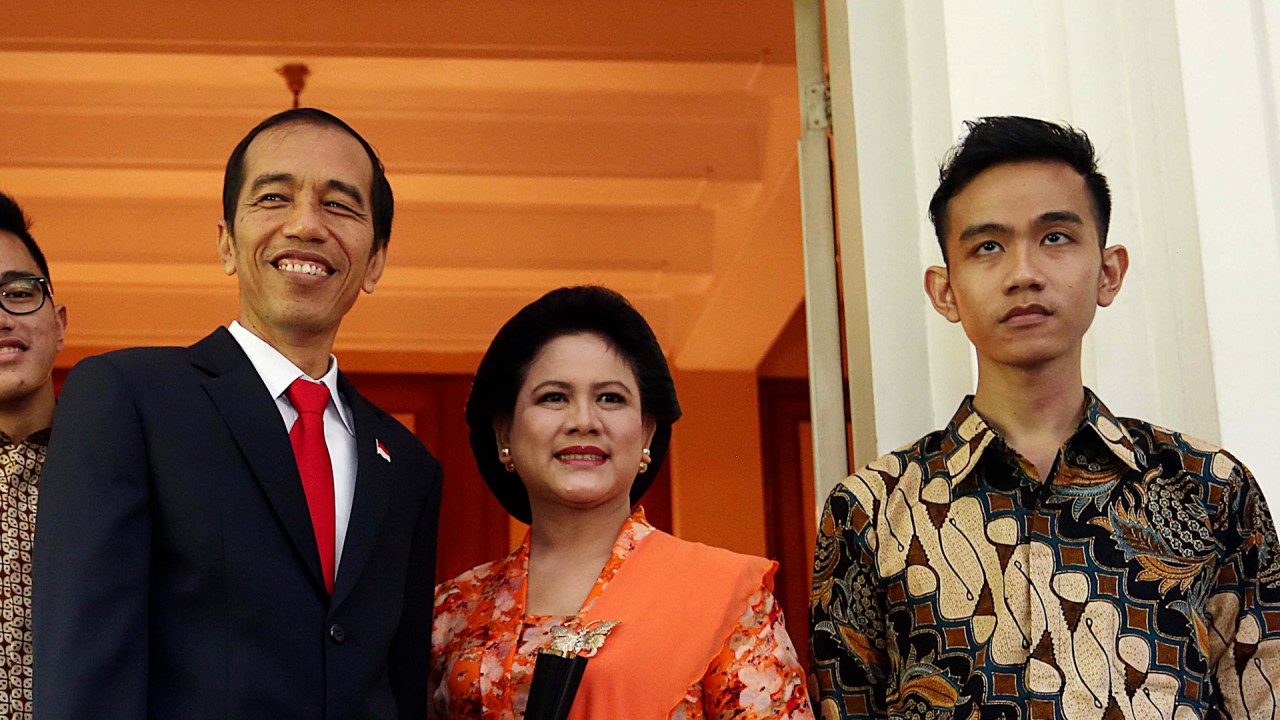Indonesia election 2024: woman whose ‘words carry weight’ could determine winner of presidential polls
The three contenders for the top job – Defence Minister Prabowo Subianto and former regional governors Ganjar Pranowo and Anies Baswedan – had all sought her endorsement. After weeks of deliberations, on January 10, Khofifah threw her support behind Prabowo, the former military general, who leads in polls and rose through the powerful military under the patronage of the late dictator Suharto.

Khofifah’s backing of Prabowo may prove pivotal, amid local media reports that Ganjar and Baswedan may be trying to form an alliance to prevent an outright victory for Prabowo in the elections scheduled for February 14 and force a run-off in June. Prabowo, who polled at 46.7 per cent in a December survey by Indikator Politik Indonesia, must secure at least 50 per cent of the national ballots to succeed Widodo. If not, the top two candidates will battle in a run-off.
As a senior leader in Nahdlatul Ulama, the largest Islamic organisation in the world’s biggest Muslim nation, Khofifah’s influence extends to vote banks beyond East Java. Her support for Widodo was credited as among the reasons for his easy win in East Java for a second term in 2019, people close to both politicians said. Her approval rating in the vote-rich region is above 70 per cent.
Within Nahdlatul Ulama, she broke precedent after she was elected for a third term as chairperson of its women’s wing called Muslimat, which analysts estimate has over 30 million members. The almost unanimous support for Khofifah prompted the organisation to even amend its regulations – of only allowing an individual to serve as chairwoman for two terms.
“Female voters might find her support to Prabowo and Gibran convincing,” said Ella Prihatini, a lecturer at Jakarta-based President University. “She certainly has her unique strength in garnering public support during elections. Her long and extensive experience in politics put her among the top politicians whose traditional voters are based in East Java.”
Even before her endorsement, she had been leaning towards endorsing Prabowo, who tapped Widodo’s son Gibran Rakabuming Raka as his running mate, out of loyalty to the president whom she considers as her mentor, according to people close to Khofifah.
The East Java branch of Muslimat declared its support for Prabowo in December, a move done with Khofifah’s blessings, according to two people familiar with the situation, who declined to be named. Khofifah didn’t respond to repeated requests for an interview.
While Widodo has not officially endorsed a candidate, signs are pointing to his support for Prabowo, not least with his eldest son joining the latter’s ticket. Widodo’s vast volunteer network backed the former general as early as October while he has held meetings with Prabowo numerous times since late 2022, the latest of which was on January 5.
Once a political outsider, Widodo is seen to have positioned himself to extend his influence potentially for decades to come, cementing a legacy defined by the creation of a new capital city and a push towards onshore processing of resources to transform Indonesia into a high-income nation by 2045.
Indonesia election: is Jokowi’s ‘partiality’ for Prabowo a double-edged sword?
Indonesia election: is Jokowi’s ‘partiality’ for Prabowo a double-edged sword?
Considered as VP
Despite her credentials and influence, Khofifah has never run for national office.
She was strongly considered by all three presidential candidates as a potential running mate, insiders said. Widodo even instructed his aides to safeguard Khofifah’s public image should she become a vice-presidential contender, according to the people.
In the end, the candidates all chose male running mates out of fear that Indonesia’s patriarchal society isn’t ready for a woman to occupy the second-highest post, the people said. Megawati Sukarnoputri became the country’s first female leader, although she was appointed to the role and subsequently lost in the first open presidential election in 2004.
Within her inner circle, Khofifah expressed disappointment that she was not picked. She intends to seek a second term as East Java governor at the local elections that will be held this November. In return for her support, Khofifah expects Prabowo to back her re-election campaign, the people said.

Khofifah entered parliament in 1992 at the age of 27, following the Reformasi or reform movement that ousted former President Suharto. She has been a vice-speaker of parliament and also held cabinet positions. She resigned from Widodo’s cabinet in 2018 to run for East Java governor and won after two failed attempts, becoming only the second female governor after direct regional elections started in 2005.
In East Java, she has cut through the red tape which has hindered growth, made tough decisions during the pandemic, and conducted blusukans – a Javanese term for unannounced visits, to markets and homes. That is a style that many say she adopted from Widodo.
“It’s rare you have strong female leaders like Khofifah. So, when she says something, you follow because her words carry weight,” said Hayati Sugiharti, a 59-year-old housewife from Malang, a two-hour drive from the East Java capital of Surabaya.
“If she believes in a particular candidate and asks us to vote for him, I will listen. And I will ask my husband and kids to do the same.”



 Huge Games Selection
Huge Games Selection